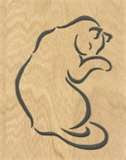On Monday, we watched the documentary film
Buck in my class. The film is about a man, named Buck of course, who is a horse whisperer. He was the inspiration for the 1998 movie
The Horse Whisperer starring Robert Redford.
Buck was a decent film, not the best documentary I have ever seen, but it seemed to hold my student's attention which is saying something. The core message of the film is what makes it worth seeing.
The movie is about Buck Brannaman's life as a horse trainer. But really it is about how being a loving person is better than being a jerk. That is an oversimplification, but essentially it is the message at the core of the film. Brannaman's father was a horribly abusive man who beat Buck and his brother unmercifully. Finally, they were removed from the home and put into foster care. Now, many years later, Buck trains horses. He is using the lessons he learned from his own terrible past to teach the horse community that using brutal training methods is ruining their horses, and maybe themselves, and teaching the horses to be afraid. He, and the film, makes explicit connections between his own childhood, the horse training, and parenting.
The film moves back and forth between stories about Buck's childhood, clips of his training clinics, and itneractions between Buck and his teenaged daughter. His history of abuse was so bad that a childhood friend, a man in his 50's, breaks down and weeps while talking about it. It is a touching and salient moment in the narrative when Buck points out that his daughter is just like him; and he is a little sad about the fact if he had been raised in love he would be as amazing as his daughter. Yes, I cried. It is clear that Buck grieves for his lost childhood, but also that he understands that he has to choose how to repudiate that history each day. He has to remind himself that he is kind, that the world is kind.
The big dramatic moment comes when a woman brings in a "demon colt" for training. Throughout the movie we see Buck gentle horse after horse. He begins with a frightened bucking animal and ends up with a pet following after him like the most loyal of dogs. It is amazing each time. But, back to the demon colt. The colt was orphaned and may have even suffered brain damage from a lock of oxygen, so the colt has had a tough beginning. But, the real damage, we are reminded again and again, was done by the trainer. She raised him with a pack of stud horses and let him remain a stud as well. Through her coddling of this horse she has allowed him to be spoiled and wild: She unintentionally trained him to be "a predator." The horse is so viscious that he attacks one of Buck's colleagues with pure malice. It is clear that this horse is not protecting himself, but is instead intending mayhem. The trainer is so badly injured he requires several stitches to his forehead. They decide to put the horse down.
It is an emotial moment when they decide to give up on this horse and sentence him to death. As the demon colt is being taken back onto the truck the owner tries to force him and is yelling at him and yanking the horse around. Buck, who clearly dislikes this treatment, and has already told this woman that she needs to get help for her own problems, firmly tells the woman to step away from the horse. When he takes over he gently and calmly works with the horse until he dociley walks into the truck on his own. In that moment, you can see the difference the film is talking about. You can see that if that horse had been raised by another, gentler hand his life would be different.
The next day, at the training, a couple of people ask Buck to talk about the demon colt. They want explanations, and he gives them. He simply says, "The horse was failed by his owner, yes he was disabled, but that is not what made him what he is." A woman--who had been crying the day before as they loaded the colt--asked him about his kindness in loading this doomed animal onto the truck. He said, "Just because we have decided to put the colt down doesn't mean he deserves to be treated unkindly."
It is such a simple message really, but one that needs to be repeated. And repreated. Kindness matters. Kindness is a choice. So, please choose to be kind.





